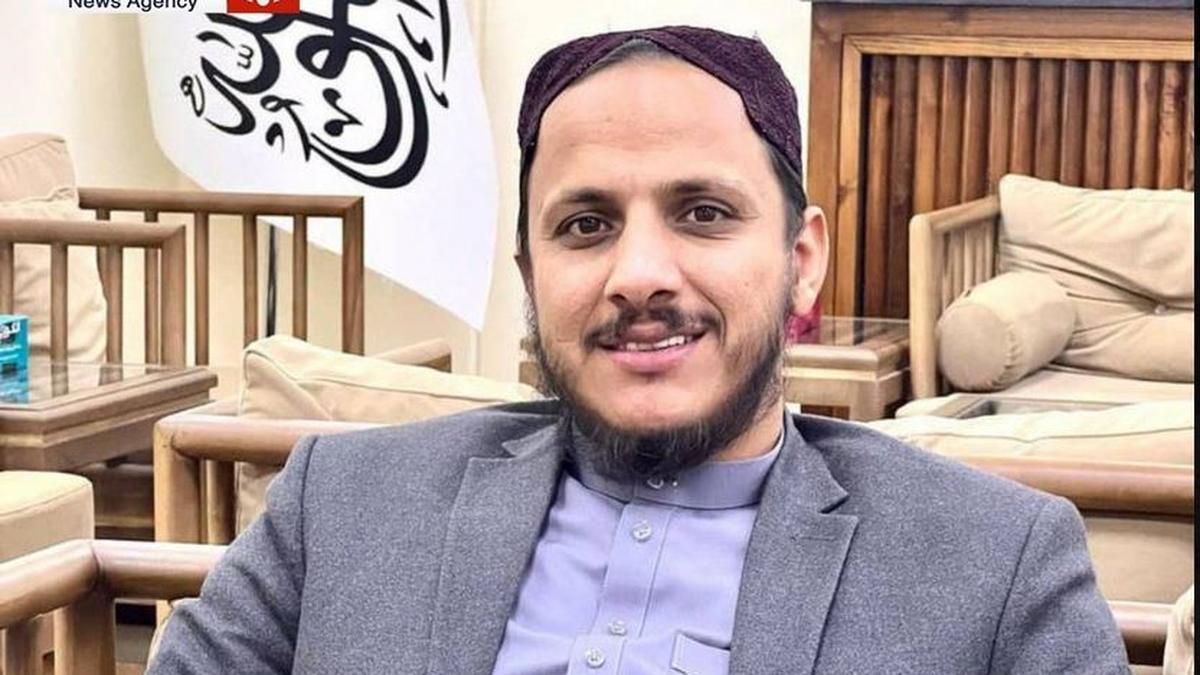Here’s a case of a curious appointment. India doesn’t recognise the Taliban regime in Afghanistan. However, the Taliban on Tuesday night (November 12) announced the appointment of an “acting consul” at Afghanistan’s Mumbai consulate.
Sher Mohammad Abbas Stanikzai, the acting deputy foreign minister of the regime, made the announcement in a post on X that Ikramuddin Kamil, an alumnus of New Delhi’s South Asian University will be the acting consul, while pro-Taliban media outlet Bakhtar News Agency reported that Kamil is already in Mumbai and carrying out the duties of a diplomat.
We take a closer look at who is Kamil and why his appointment as the Taliban’s acting consul matters to India.
Selection of Kamil
On Tuesday, with the appointment of Dr Ikramuddin Kamil, the Taliban regime made its first diplomatic posting in India since its takeover of Afghanistan in 2021.
According to news reports, Kamil has been pursuing a PhD programme at the South Asia University in Delhi for the past seven years.
Interestingly, India has remained mum on the appointment, offering no official statement. However, sources within the government confirmed the news. Sources were quoted as saying that he is “a young Afghan student, who the Ministry of External Affairs (MEA) is familiar with, and who has studied in India for seven years while completing his doctorate from South Asia University on an MEA scholarship”.
“As far as his affiliation or status is concerned, for us, he is an Afghan national working for Afghans in India,” sources added.
Kamil’s appointment as acting consul of the Taliban in Mumbai comes after a delegation of officials, headed by Joint Secretary (Pakistan-Afghanistan-Iran) JP Singh, met with Mullah Mohammad Yaqoob, the acting defence minister of Afghanistan earlier this month. For the unaware, Yaqoob is the eldest son of Mullah Omar, the former Supreme Leader of the Taliban, who died a little over a decade ago.
Taliban’s diplomatic presence in India
When the Taliban took over Afghanistan again in 2021, almost all of the diplomats appointed by the previous Ashraf Ghani regime left, seeking asylum in Western countries.
It was in October last year that the embassy of Afghanistan in New Delhi shut down, announcing a lack of support from India. This left the Taliban with two other consul generals in Hyderabad and Mumbai and they continued in their roles.
However, earlier in May 2024, Consul General in Mumbai Zakia Wardak resigned from her role following a gold smuggling incident at the airport. She was found to be allegedly smuggling 25 kilogrammes of gold into India from Dubai. Wardak left the country after stepping down from her role. She could not be arrested due to her diplomatic immunity.
Since then, Syed Mohammad Ibrahimkhail has been the sole functioning diplomat in India.
Why Kamil’s appointment matters
The appointment of Kamil as acting consul is important, as it will help with consular work. With the fleeing of diplomats and the departure of Zakia Wardak, there was only one member keeping the consulates running.
However, the situation was becoming untenable, said Indian official sources. “There is a large Afghan community based in India, which is in need of consular services. More staff is, therefore, required to effectively service the Afghan nationals currently residing in India,” they were quoted as saying.
A large number of Afghans come to India yearly, to study, for business or even health purposes. However, owing to the shortage of officials, the processing of visas has become longer.
Moreover, Kamil’s appointment is also a move by the Taliban to gain credibility in the world. “This appointment is part of the Islamic Emirate’s efforts to strengthen diplomatic ties and enhance its presence abroad. Dr Kamil is expected to facilitate consular services and represent the interests of Afghanistan in India, fostering collaboration between the two nations,” said Bakhtar News Agency in a social media post.
New Delhi is among the many nations that don’t recognise the Taliban administration. However, it does maintain dialogue with it. Earlier, in February, the MEA said Indian diplomats have been engaging the Taliban in “various formats”.
“We have been attending several meetings on Afghanistan in various formats both at the digital and international levels. You would have seen that recently we also participated in regional meeting in Kabul where the head of our technical team attended. He apprised the meeting of India’s long-standing friendship with the Afghan people and the humanitarian assistance that we are carrying out in the country,” the MEA’s official spokesperson Randhir Jaiswal said.
This outreach to Taliban, however, is geostrategic. New Delhi doesn’t want Pakistan and China to turn the group into an advantage against India. In fact, earlier in February, China became the first nation to recognise a Taliban envoy, though it did clarify that it did not signal Beijing’s official recognition of Afghanistan’s current rulers.
With inputs from agencies


)

)
)
)
)
)
)
)
)



